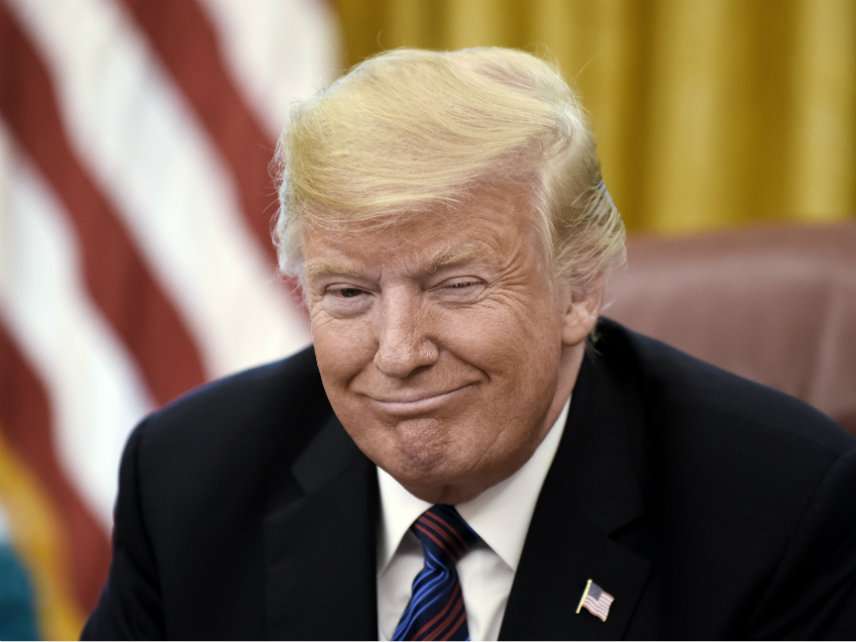Trump Doesn't Like What People See When They Search 'Trump News'
Threatened regulations on "fake news" would be an attack on press freedom

Early this morning, President Donald Trump tweeted his discontent with the Google results that appear when you search for news about the president. "Google search results for "Trump News" shows only the viewing/reporting of Fake New Media. In other words, they have it RIGGED, for me & others, so that almost all stories & news is BAD." Google and other companies, he tweeted in a follow up, "are suppressing voices of Conservatives and hiding information and news that is good. They are controlling what we can & cannot see." He finished by suggesting that this might be an area where the government should step in: "This is a very serious situation-will be addressed!"
It may be tempting to dismiss these pre-dawn tweets as nothing more than the restless ramblings of a tech-illiterate old man. (Trump uses Twitter on smartphones, but not email, and has little experience with desktop computers.) They also serve as a form of guidance from the president of the United States. And Trump's staff is, at least for the moment, allowing for the possibility that the Trump administration will pursue internet search regulation as a policy.
Asked this morning whether Google's results should be regulated by the government, Trump's top economic adviser, Larry Kudlow, responded, "We're taking a look at it." This is not a formal policy commitment, but Kudlow does not simply dismiss the possibility of federal regulation. Even if, as seems most likely, nothing ultimately comes of it, his response underscores the potential consequences that could arise from Trump's Twitter obsessions.
Arguably the biggest of the obsessions is media coverage of Trump himself. One certainly can—and should—view Trump's tweets as part of a growing chorus of calls for Washington to regulate tech and social media, as Elizabeth Nolan Brown wrote this morning. But they are also part of a pattern of self-obsessed press criticism from the president, in which he threatens to take legal action against media outlets he views as critical of him. On multiple occasions since the start of his campaign, Trump has raised the possibility of changing laws in response to unfavorable coverage from newspapers like The New York Times and The Washington Post. Among his most consistent refrains is "Fake News," which more often than not refers to news that is entirely true but unflattering to the president.
Trump's tweets about Google this morning fall squarely into the same category: He is complaining that Google highlights reputable mainstream news sources rather than partisan outlets more favorable to the president. And although his threats may be hollow, he is nonetheless raising the possibility that the power of the federal government will be brought to bear in response. Trump's tweets are yet another attack by the president on the idea of press freedom.
Of course, they are also the ramblings of a tech-illiterate old man—so it is hardly surprising that they appear to have backfired.
Google's search results are the result of a complex algorithm which the company says doesn't rely on political ideology. And, anecdotally, when I tried the search myself this morning, hours after his tweets, the top results were a Fox News article about Tiger Woods saying that people should respect the office of the president—and CNN and Washington Post articles offering critical analysis of Trump's tweets from this morning. By tweeting his disdain for the coverage that often appears at the top of Google's search results, Trump seems to have succeeded, at least momentarily, in drawing even more attention to coverage that portrays him in a negative light.


Show Comments (177)